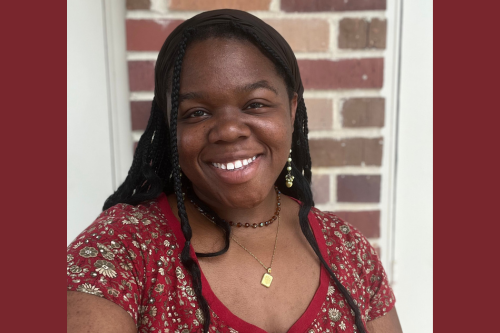What do you consider to be ‘high value’? Tickets to Taylor’s Eras tour? A luxury honeymoon in the Maldives? Jewellery? A car… your dream home? Commodities, items… things. Well, if you take a scroll down TikTok’s FYP, you’ll likely see countless ‘content creators’ using the term to describe people, specifically those they consider date-worthy.
Take this advice shared to an influencer’s 800,000 plus followers on the platform: “Society has told women that they can have unrealistically high expectations of men while not actually bringing anything of value to the table to a man. This goes further than appearances btw ladies, it’s also how you act! Are you sweet, nurturing, and pleasant to be around? Or are you aggressive, domineering, and undisciplined?” It may sound like the ramblings of a misogynist, but the user in question is ‘dating coach’ Nelly Sudri (@ask.nelly on Instagram and TikTok).
Sudri is part of a new brand of online personalities who specialise in ‘high value dating’. She and those like her are amassing hundreds of thousands of social media followers by teaching women how to be feminine to attract ‘high value’ masculine men. They encourage women to adopt conventionally feminine behaviour to find a ‘provider’ who will give them a luxurious lifestyle and allow them to quit their jobs. Sudri even runs an online course called ‘Manifesting Mr Right’, and provides tips via Instagram to help her followers find him, including: lead with your ‘feminine energy’ by letting the man make decisions, be a ‘feminine asset’ to him by looking pretty and groomed, and learn to withhold information to flatter his ego.
Also offering women such advice is SheraSeven (real name Leticia Padua, 1.2 million TikTok followers), who admonishes women to stop wasting their time on ‘dusties’ (men without money). Like Sudri, her advice to find a ‘high value’ man includes going to high-end bars, looking feminine, and avoiding speaking too much to cultivate an air of mystery. Some of her videos are receiving millions of views, and her catchphrase ‘sprinkle sprinkle’ (which the creator says means ‘blessings’) has gone viral on TikTok. SheraSeven fan accounts have sprung up, and many women are producing videos where they tell their experience of applying the ‘sprinkle, sprinkle’ method.
Some have called these women ‘dark feminine’ influencers because they encourage women to use their feminine charms to trick and manipulate men into relationships, teachings that are not far removed from the sleazy male Pick-Up Artists (PUAs) who advocate the use of psychological manipulation to get women to sleep with them. Most recently, of course, we saw these teachings coming from influencer Andrew Tate, whose often violently misogynistic rhetoric led him to amass millions of followers on social media before his accounts were taken down (X CEO Elon Musk has since reinstated his account). SheraSeven has been referred to as the ‘female Andrew Tate’, though this comparison overlooks that Tate is currently awaiting trial for rape and human trafficking.
But while comparisons between male and female PUAs do not always acknowledge the key difference between the two – where male PUAs often advocate violence or hatred of women – a number of these new female influencers, including Sudri and SheraSeven, do subscribe to many teachings that feel lifted from the PUA playbook. Sexual Economics Theory, a concept first developed by psychologists Roy Baumeister and Kathleen Vohs and which approaches dating as a market where men buy and women sell sex, is a key tenet of incel and manosphere teachings, and talk of ‘sexual market value’ (SMV) and pseudo-hierarchies of men and women is commonplace among ‘dark feminine’ influencers. The manosphere and female PUAs in turn also promote the pseudoscientific idea of female ‘hypergamy’, the idea that women are biologically hard-wired to only want rich partners or partners who have a higher SMV than they do.
But, in an era when young women are becoming increasingly vocal in their feminism and misogynist influencers like Tate and the Fresh and Fit podcast duo (who devote plenty of time to discussing SMV and whose co-host Myron Gaines wrote in his book, Why Women Deserve Less, that “all men are Johns; all women are whores”) are thriving among young men, how is there a welcome space for such ideologies among women? How is it that misogynistic pseudoscience has made its way into a female-led space to become a key tenet of advising women how to date? And why are these teachings proving so resonant?
The rise of female PUAs dovetails with the similarly antifeminist tradwife movement – women who promote a Betty Draper-esque lifestyle of quitting their jobs to submit to their partners and become traditional homemakers – but has few crossovers beyond the traditionalism of the outdated gender roles they’re promoting. Female PUAs, for example, advocate for traditional gender behaviours and promote a luxurious lifestyle of shopping, manicures, Pilates, and business trips with their rich partners.
It’s perhaps unsurprising that these influencers have gained popularity in a time when online dating has become an algorithmic game in which manipulative techniques like ‘ghosting’, ‘benching’, and ‘orbiting’ have become normalised and where women are regularly recipients of unsolicited sexual imagery, or feel the need to turn to online forums to ‘vet’ their dates. The landscape of online dating has become so unbearable to some women that they have even declared themselves ‘boy sober’, and dating apps have admitted that they are losing users.
Part, then, it seems, of these coaches’ appeal is that they speak to women’s frustrations with online dating and endless strings of bad dates. Women PUAs have different styles: some use wellness-related language and encourage women to tap into their ‘divine feminine’, while others use no-nonsense, ‘tell it like it is’ language and cultivate the tone of an older sister who has your back. Take Nadeen Hui (over 48k followers on Instagram), who describes herself as a “big sis to the girlies who get it”. She too runs an online course called ‘The Elite Girl Secrets’ and encourages women to embrace their divine femininity to find a masculine man who will give them the #PrincessTreatment and allow them to live the life of “elite spoilt girlies”.
In her online dating guide, Hui details her own journey from “girlboss to spoiled girlie” and gives advice to women on how to cultivate their feminine energy: it includes wearing feminine clothes such as skirts and dresses, having a ‘positive attitude’ and creating an ‘abundance mindset’, and learning playful flirtation skills. Hui also made headlines for putting her boyfriend on ‘probation’ with a list of things he needed to change.


Like Hui, many of these women use empowering language, encouraging women to be confident. Sudri, for instance, tells women to respect themselves: “How to stop getting played by players… It starts with you breaking the cycle and deciding you deserve better!” While misogynists tell men that women deserve less, it is not a surprise to see that dating coaches are doing well by telling women they actually deserve… well, more.
Jilly Kay of Loughborough University, who studies female dating influencers, tells Cosmopolitan UK that in this dating landscape, “these coaches can appeal because they offer a way to protect yourself from the manosphere and their tactics”. She explains:“There is a strange entanglement between seemingly feminist ideas but essentialist language about male and female behaviour.” Dark feminine influencers or women PUAs are part of what she calls the ‘femosphere’. “They use the idea that men are hard-wired to be providers, but they are different from tradwives because they don’t want to do a lot of domestic work or be in hyper-traditional roles.”
When Cosmopolitan UK put it to Sudri about whether her advice can encourage gender stereotypes, she said she stands by her theory. “Women who are educated and financially independent struggle to find love because they tend to seek partners of higher socio-economic status than them,” she explained, adding that “feminine energy and appearance is a proven method of attracting those types of men”. She did not provide scientific data to support this theory.
For women who have experienced endless strings of bad dates and worse via dating apps, the allure of identifying red flags and taking charge of a dating world that feels out of control is understandable. Returning to traditional gender behaviours can feel reassuring in times of uncertainty and changing norms. There are signs that Sudri and Hui’s advice is striking a chord. Dating guides from the 1990s and 2000s like The Rules and Men Are From Mars, Women Are From Venus are selling out again, and on TikTok, videos of influencers reading extracts from these books have gone viral. But despite all the talk of women valuing themselves, much of what these coaches preach looks like a narrow view of gender relations and what a good partnership is about. What’s more, research has shown that men who are exposed to Sexual Economics Theory on social media are more likely to see women as the enemy.
Persia Lawson is a relationship coach and CBT practitioner who has interviewed thousands of women and written two books on relationships and wellbeing. She finds this type of advice reductive, although her observations partly match Sudri’s. “The women I work with are career-focused, independent, and confident, but struggle in dating,” she tells Cosmopolitan UK, adding that she’s receiving more enquiries about women who are seeing the advice promoted by ‘dark feminine’ influencers, and who wonder if they have to play games or adopt stereotypical feminine behaviour and looks to attract a man.
Lawson says her research has found that women overwhelmingly want relationships that are “healthy, exciting, and meaningful” – rather than the kind of ‘high value’ man these influencers refer to. “Women who come to me are seeing this advice online and it’s often making them feel worse”, she says. She believes that there is nothing inherently wrong about cultivating femininity, as long as it’s not about supporting narrow scripts. “I’m worried that we’ll end up with very stereotypical advice that doesn’t allow women to form the meaningful relationships that they actually deserve.”
Millennial and Gen Z women faced with stagnating wages and the persistent gender pay gap might be tempted by the promise of quitting the rat race and finding a rich partner to support them, but the promise of ‘empowerment’ at going down this route can backfire. Many women who adopted the ‘stay-at-home girlfriend’ lifestyle have found that money is used as a tool of domination, and should the relationship end, far from living happily ever after on the money gained in a chunky divorce settlement, they are left with nothing. Women fought for decades to gain the ability to become financially independent, and when nuance is non-existent in two-minute snappy TikTok videos, those who follow these women run the risk of forgetting why.
Hui tells Cosmopolitan UK that she has no desire to see women give up their independence. “At the heart of my message is the belief that people should have the relationships they want, and the one I advocate for are relationships where both partners are ‘givers’ in their own ways,” she asserts. “Being well loved, cherished, taken care of, and provided for doesn’t mean a woman can’t or shouldn’t have her own money. In fact, the premise to dating provider-minded men is that the woman is her best self, living her best life, so she can recognise proper love and treatment, and not accept anything less.”
And yet, at the core of this philosophy is a narrative ultimately based on transactional ideas of male-female relationships. It makes you wonder when followers of these women will ask themselves if they deserve more.
You Might Also Like







